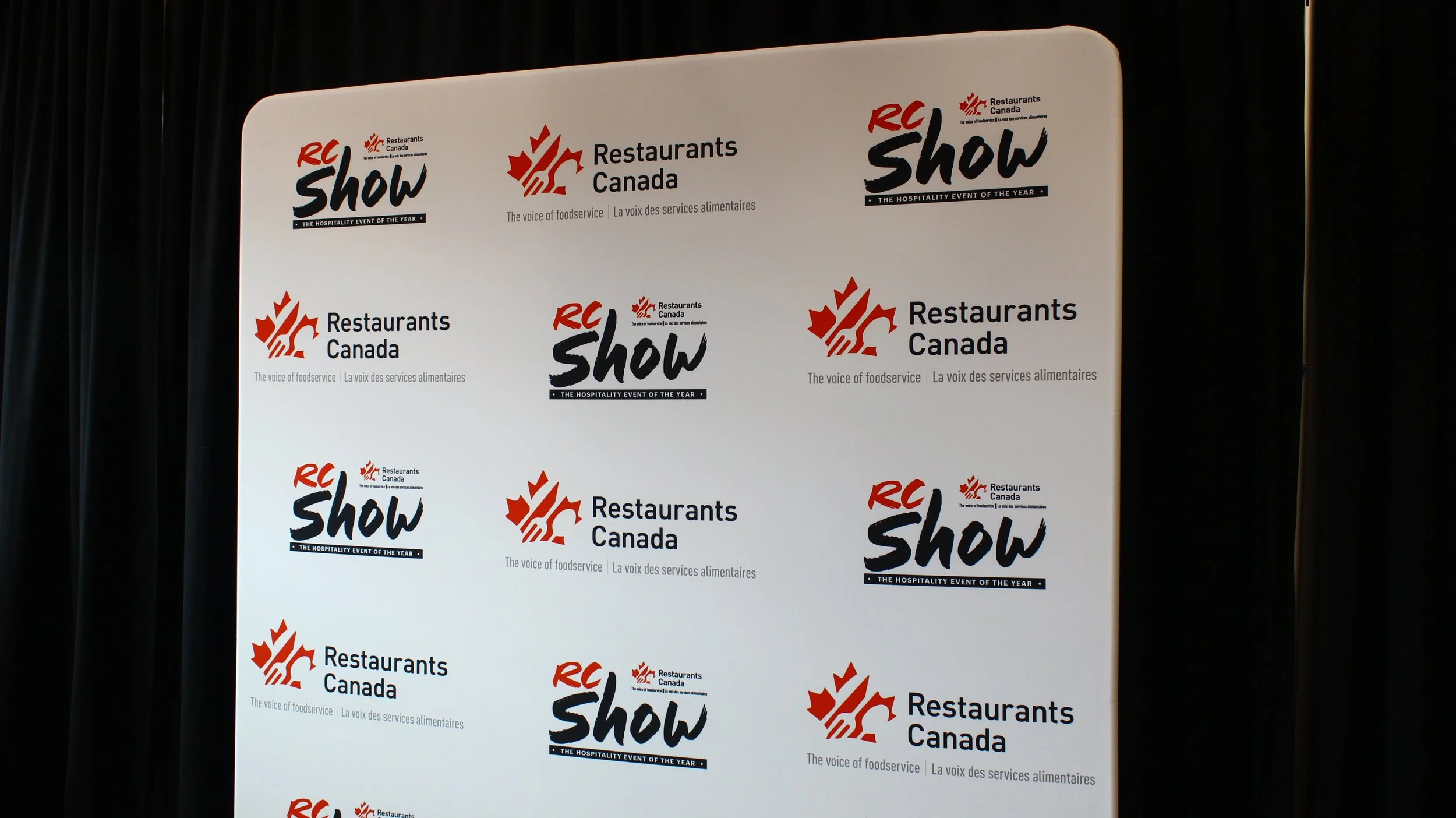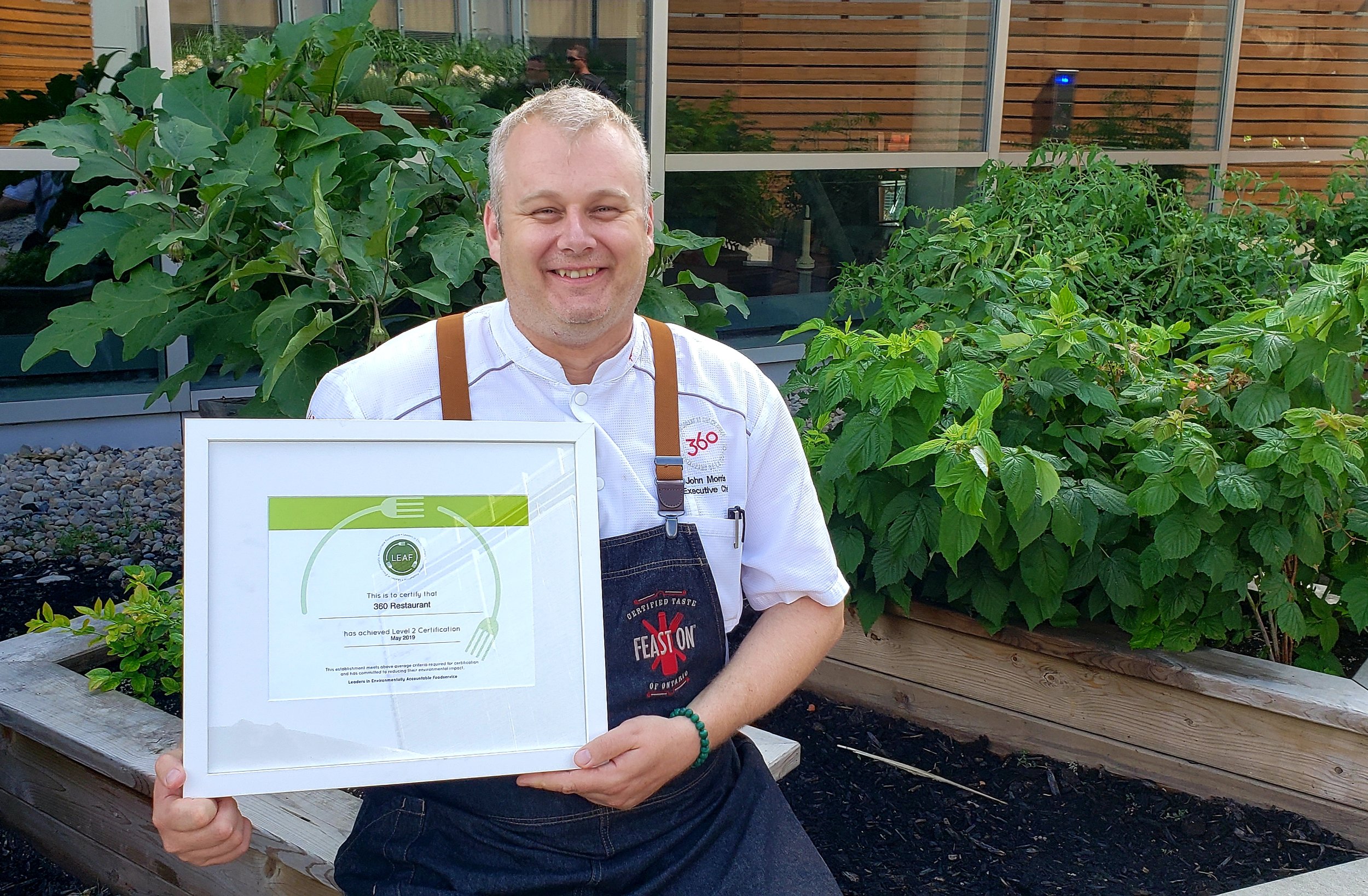Executive Chef John Morris
As a world-class attraction, The CN Tower knows that it needs to be a leader in sustainability and show that venues of all sizes can implement change, to make change. The CN Tower sees over 1.9 million guests and 360 serves more than 350,000 diners in a year. Numbers like that make a dramatic impact.
We all know that every little bit counts when it comes to making sustainable choices to help reduce our footprint on the environment, which is why the CN Tower has made changes to how they operate, in order to help reduce their impact. In spring of 2019, the CN Tower also achieved LEAF Certification for the work that they’ve done. The 400-seat 360 Restaurant has received a Level 2 LEAF Certification, and Le Café and VUE Bistros are Certified LEAF Cafés.
What makes The CN Tower LEAF certified?
Small yet important changes like moving to paper straws and to products made with compostable materials wherever possible. Their onsite Culinary Gardens grow a range of herbs, fruits and vegetables that are used in 360 Restaurant, as well as serving as an opportunity for education.
The CN Tower has reviewed all suppliers, and where possible made the change to a local supplier or had existing suppliers source local ingredients. From the Tower, you can see many of their suppliers or the regions where they are located. By sourcing more local ingredients, 360 is making a major economic impact locally.
Several years ago, the CN Tower made the decision to feature Ontario craft beers only. 360 also instituted a wine mandate to feature more local, artisanal, limited supply, and hard to find Ontario wines. But they don’t stop at beer and wine - they have also developed a Canadian focused cocktail list with all cocktails being driven by a Canadian based spirit.
“The opportunities in our field to make positive changes are plentiful, and can have a global impact. Our team is seen as leaders in this area and we want to inspire others to take more action. Achieving LEAF certification for the CN Tower and 360 Restaurant was key for us as it shows our commitment to being environmentally responsible with our foodservice.”
Executive Chef John Morris, 360 The Restaurant at the CN Tower
In 2018 the CN Tower installed an ORCA, an innovative food waste solution system that mimics the natural digestion process. ORCA uses mostly air, along with water and microbiology to turn the food waste from the base kitchen for 360 Restaurant, into an environmentally safe liquid that goes down the drain and is disposed of using the existing sanitary sewer infrastructure. This reduces the amount of food waste that needs to be picked up and transported.
Due to this technology our environmental footprint has been reduced in the following ways:
11.24 tons of food waste was diverted
6,350 litres of diesel fuel were not used
Reduced methane gas by 7.31kg
Reduced carbon dioxide by 9.89 tons
360 Restaurant has achieved FeastOn Certification and also recently received the Greenest Choice TO award for a FeastON Certified Restaurant. They are also Ocean Wise certified for sustainable seafood.
“We will continue to find ways to lessen our environmental impact, but in the mean time we encourage you to come and experience what we have done so far.”







